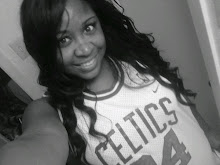The National Basketball Players Association feels that only a "small number" of NBA teams are losing money and continues to say that it is not willing to put a hard salary cap into play when it negotiates a new collective bargaining agreement with the league.
NBPA executive director Billy Hunter reiterated his union's stand during a wide-ranging interview with ESPN.com last week at the union's Harlem, N.Y., headquarters.
The NBA's collective bargaining agreement with its players expires on June 30.
“”-- National Basketball Players Association chief Billy HunterOur belief is that a small number of teams are suffering, and their problems can be addressed through revenue sharing.
The NBA says more than half its teams are losing money -- more than $300 million a year, it has said -- as it demands sweeping changes to the CBA.
Hunter disputed that. "Our belief," Hunter said, "is that a small number of teams are suffering, and their problems can be addressed through revenue sharing."
Hunter also said that the key negotiating point for the players is the NBA's push for a hard salary cup, rather than a "franchise tag" or some other limit on the movement of top players.
Hunter says a hard cap would effectively end guaranteed contracts which he calls "the lifeblood" of professional basketball. "We've had that right for years, and it's not something we're trying to give up."
Hunter added: "If you get a hard cap, owners get a guaranteed profit. And you get franchise values that go through the roof. That's what you get."
At last month's NBA All-Star Game, commissioner David Stern said that the players and league agree "about the numbers." The league told ESPN.com that it has given the players all the financial information they need.
"The NBA has shared with the players' union audited financial reports for all 30 teams which unequivocally demonstrate why Mr. Hunter favors the expiring agreement and why it does not work for us," spokesman Tim Frank said.
The NBPA contends the reality is more complex than is expressed in those documents. Hunter questioned some accounting procedures on what constitutes operating losses, and pointed out that, in many markets, team owners also earn revenue from also owning local TV networks that carry the teams' games. He also said owning an NBA team comes with a high profile that helps owners' other businesses.
Hunter also noted that, with higher TV ratings and the recent sale of the Golden State Warriors for a reported $450 million, the league is doing well.
"It's not about wiping out losses," union lawyer Ronald Klempner said. "They're not running a Staples. They're not running a car dealership. Ownership of an NBA team is a completely different animal. What turns up at the bottom of a balance sheet is not the entire financial picture."
The union and league can't even agree on how much players are making right now. The league contends that salaries have gone up in every year since the current agreement's 2005 inception. The union counters that the amount owners have agreed to pay players has gone down each of the last three years.
Union spokesman Dan Wasserman said players are projected to make a combined $2.02 billion this season. "Just two years ago," he said, "that number was $2.14 billion, so negotiated salaries are down $120 million in two years. That's the first time that has happened."
The union argues that a reduction in negotiated salaries demonstrates that the current CBA is sufficient to reduce long-term spending. They also say they have offered to reduce their guaranteed minimum income from 57 percent -- the current number in the CBA -- which would allow owners to keep a greater percentage of revenues.
Hunter and the NBPA say costs like fuel, security, coaches, front office personnel, marketing, and for some owners, high purchase costs, are what's cutting into owner profits, not salaries.
"So here we are, we're at this stage, at the end of our current deal, and they're saying they just want more," Hunter said. "They don't like the current split. Since they are the 'elephant in the room' -- at least they think they are the elephant in the room -- that they can make this demand.
"The reality is that the players are the elephant."
Hunter dismissed the idea that players are unprepared to weather a work stoppage.
"That's the belief," he said. "That was put to rest and proven false in [the lockout of] 1998. And I can assure you that if the owners continue to push for the deal they've been pushing for for the last two years now, that the players will take a stand. They won't cave. And they'll ride through this lockout." Hunter said he does not yet know what's driving the league's tough stand.
"We're trying to determine whether it's all rhetoric, or if it's real," Hunter said. "We'll only know in time. We're not in a position right now to say. David [Stern] hasn't given me any indication for me to conclude that it's rhetoric. He seems pretty strident, and pretty much dug in in terms of where he is.
"And his contention is that that's what the owners are demanding of him. If that's what the owners are demanding of him, until their position softens, we have no other choice but to play the hand that he's dealing us."
Asked why he thinks NBA owners would threaten to shut down what, for most, is a money-making venture, Hunter said: "Because they want to make more money. The whole idea is to increase the value of the franchises."





